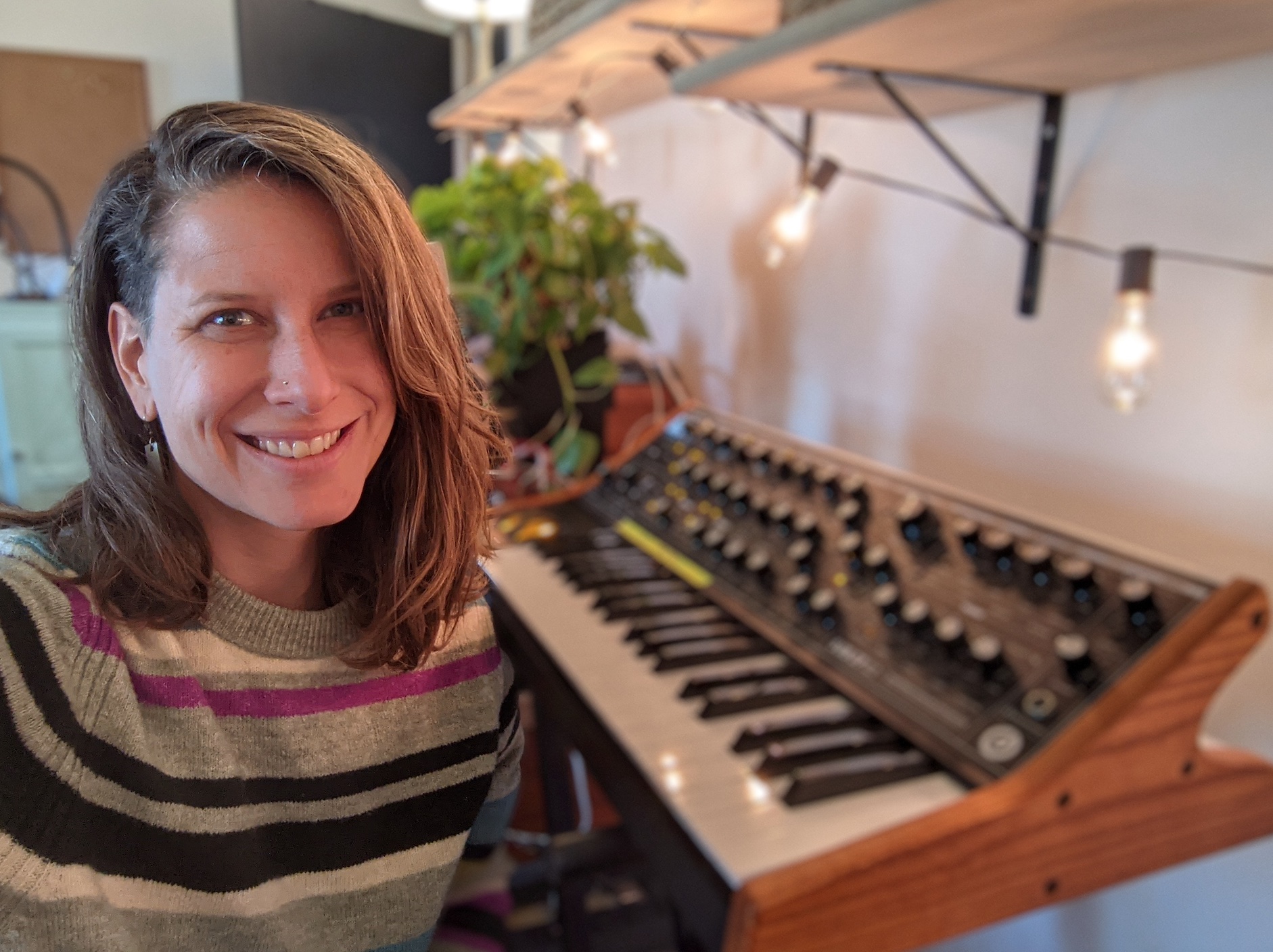Oratorio Chorale launches virtual music workshops
April 23, 2021
 Courtesy of Emily Southard
Courtesy of Emily SouthardThis spring, Oratorio Chorale—a midcoast Maine-based choral community—will continue holding music workshops in an entirely virtual format. While the Chorale traditionally holds these workshops in person, Artistic Director Emily Isaacson still sees the value in providing community members with opportunities to further or begin their education in music.
In 2015, after spending a decade in graduate school pursuing conducting and musicology, Isaacson was struck with the motivation to continue learning music, even after her extensive formal education.
“I started working with community choirs,” Isaacson said in a phone interview with the Orient. “I realized that there’s a lot of super intelligent people who have spent a long time invested in learning music but still have more they want to learn, regardless of their age.”
Isaacson began holding four-week music workshops through the Chorale. These were open not just to Oratorio Chorale singers, but also to the general public. Isaacson enlisted her colleagues to instruct courses in their respective areas of expertise.
“It was just clear to me that there was a desire for a slightly more formal format to be learning,” Isaacson said. “It’s one of the things that I love about music— there are endless things to learn and to create.”
Six years later, Oratorio Chorale has hosted workshops in everything from practical skills, such as sight-reading music, to more focused studies on classical composers, such as Johann Sebastian Bach and Henry Purcell.
“There are not ‘typical’ classes because each course, depending on what it is that we’re studying, is framed really differently,” Isaacson said. “It’s just giving people an opportunity to deep dive in different ways.”
While Isaacson and her colleagues agreed that it was necessary to continue these workshops during the COVID-19 pandemic, virtual music instruction still proved a challenge to both students and instructors.
“A Zoom course is unfortunately not one where you can have a lot of interaction without it turning to chaos,” said Visiting Instructor Patia Maule, who teaches Music in Non-Western Traditions, in a phone interview with the Orient. “Of all the teaching I’ve done, this is the most lecture-like, in a way.”
Despite its limitations, Maule saw the remote format as an opportunity to introduce other forms of media to her curriculum and now plans to continue including pre-recorded musical videos in her future lectures.
“It requires a lot of prep ahead of time just to make sure that you have all your videos ready to go,” Maule said. “In a regular class or in a room of people, time just sort of flies away as you discuss things with each other, and so that’s a little bit different.”
While Maule focuses her course on theory and history, Scott Wheatley, who teaches three sight-reading boot camps at different skill levels, has been able to tailor the virtual workshops to individual groups of students.
“I don’t really have a structured curriculum that I use; I definitely gear it to the individuals in the class,” Wheatley said. “And we work on skills such as reading the music and strategizing when you’re sight reading. I just basically unload a lot of my experiences as an opera singer and professional choral singer.”
Having navigated the pandemic thus far, both Wheatley and Maule are well-accustomed to Zoom and feel confident that they will gather their footing as the session progresses.
“In every aspect of my life, I’ve had to go virtual,” Wheatley said. “I think that, for the sight-singing classes, I got to draw on all the other aspects of my professional life and all the technology that I’ve had to use in those areas.”
While he misses teaching students in person setting, Wheatley believes that several components of his sight-singing courses are more compatible with an online format.
“It actually works really well on Zoom when I can share my screen, and I can show them music and I can circle examples,” Wheatley said. “It definitely works better in some ways, [compared to] the classroom.”
Oratorio Chorale holds 16 concerts a year. With diminishing COVID-19 cases and statewide vaccination, instructors view these music workshops as an opportunity to prepare their students for a future of in-person music-making.
“All of these choral singers had no outlet—all the groups have been put on hold,” Wheatley said. “I think what the sessions can help with is building up their skills, so that when we go back into a real in-person choral situation, they will be ahead of the game.”
Isaacson plans that these workshops will continue through June, and remains optimistic about their potential, even without in-person instruction.
“My strategy during the pandemic from the very beginning has been to make lemonade out of this situation, and to find the opportunities, the hidden gems, the areas for growth, that we might not have time for otherwise,” Isaacson said. “It’s been really lovely to expand the community and give people an opportunity for growth during this very strange time.”

Comments
Before submitting a comment, please review our comment policy. Some key points from the policy: